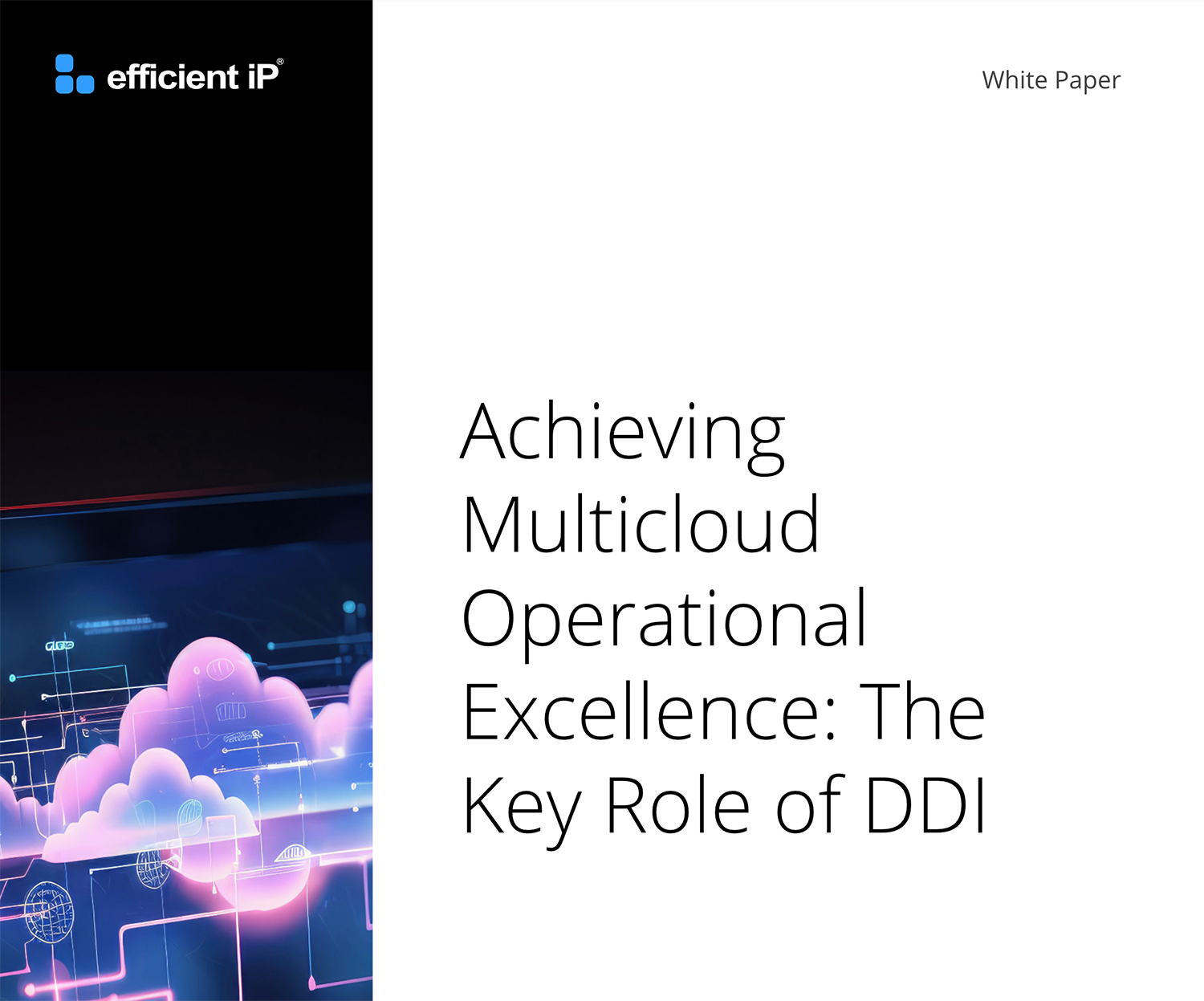Key Takeaways from the White Paper
The strategic integration of DDI in multicloud environments emerges as a crucial enabler of network efficiency, security, compliance, and operational resilience. This whitepaper illuminates the multifaceted role of DDI solutions in navigating the complexities of hybrid multicloud architectures , bringing the following significant benefits:
1. Centralized visibility and network control: DDI offers a unified platform for providing comprehensive visibility of connected network objects, managing DNS, DHCP, and IP address resources across diverse cloud environments, ensuring consistent network configurations and streamlined operations.
2. Network automation and operational efficiency: Utilizing a Network Automation Hub consisting of an API-first DDI solution with built-in Network Source of Truth will reduce manual interventions, lower the risk of configuration errors, help enforce policies, and accelerate service deployment, contributing to significant operational efficiencies and simplified compliance.
3. Enhanced security framework: With the growing prevalence of DNS-based cyber threats, DDI’s comprehensive visibility, filtering, detection, and response mechanisms fortify network defenses, enabling proactive threat detection and remediation, and protection against data theft.
4. Business continuity and reliability: DDI’s robust management, observability, and application traffic routing capabilities support business continuity by optimizing network performance, minimizing downtime, and ensuring uninterrupted access to critical applications and services.
5. Future-proofing networks: As organizations evolve and expand their multicloud footprints, DDI’s scalability and adaptability make it an essential component for future-proofing network infrastructures against emerging challenges and demands.

